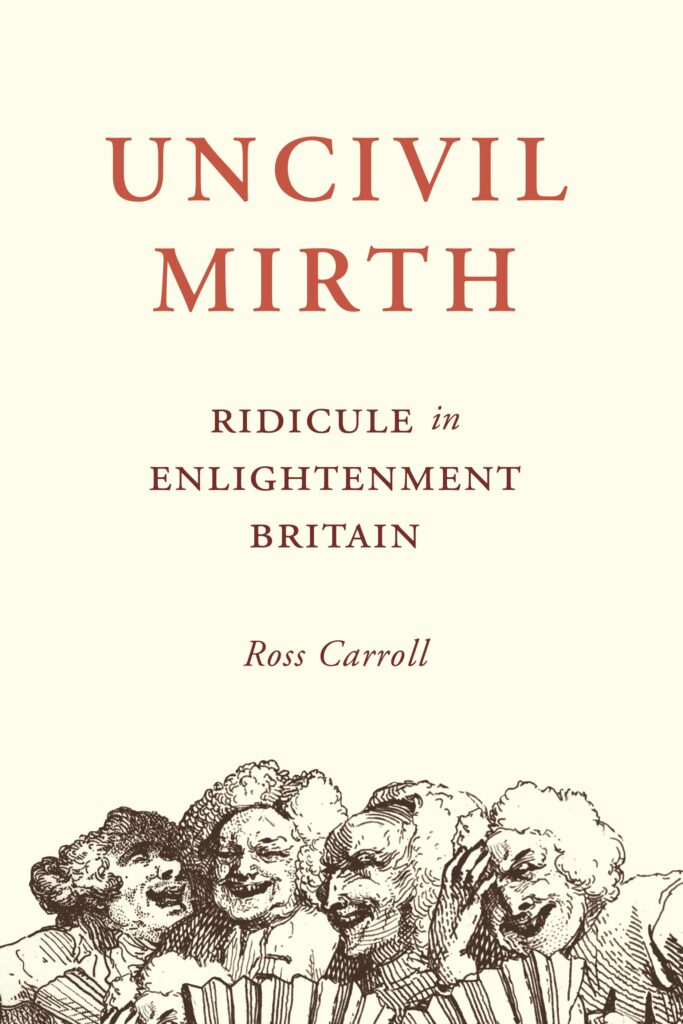Winner of the 2021 Morris D. Forkosch Prize for the best first book in intellectual history

The relaxing of censorship in Britain at the turn of the eighteenth century led to an explosion of satires, caricatures, and comic hoaxes. This new vogue for ridicule unleashed moral panic and prompted warnings that it would corrupt public debate. But ridicule also had vocal defenders who saw it as a means to expose hypocrisy, unsettle the arrogant, and deflate the powerful. Uncivil Mirth examines how leading thinkers of the period searched for a humane form of ridicule, one that served the causes of religious toleration, the abolition of the slave trade, and the dismantling of patriarchal power.
Ross Carroll brings to life a tumultuous age in which the place of ridicule in public life was subjected to unparalleled scrutiny. He shows how the Third Earl of Shaftesbury, far from accepting ridicule as an unfortunate byproduct of free public debate, refashioned it into a check on pretension and authority. Drawing on philosophical treatises, political pamphlets, and conduct manuals of the time, Carroll examines how David Hume, Mary Wollstonecraft, and others who came after Shaftesbury debated the value of ridicule in the fight against intolerance, fanaticism, and hubris.
Casting Enlightenment Britain in an entirely new light, Uncivil Mirth demonstrates how the Age of Reason was also an Age of Ridicule, and speaks to our current anxieties about the lack of civility in public debate.
Reviews:
Fara Dabhoiwala in the London Review of Books
Jan Machielsen, in The Times Literary Supplement
Mark Spencer, in The LSE Review of Books
Emily Nacol in Perspectives on Politics
Kate Davison in The English Historical Review
Catherine Mair in European Review of History
Rebecca Anne Barr in Intellectual History Review
Max Skjönsberg in The Journal of Modern History
Roger Lund in the Scriblerian and the Kit-Cats
Kathrine Cuccuru in British Journal for the History of Philosophy
Podcasts:
“Don’t be ridiculous!: Discussing Uncivil Mirth” on Podopticon with Randal Hendrickson
New Books Network with Lilly Goren
‘New Work in Intellectual History’ with Robin Mills, University of St Andrews